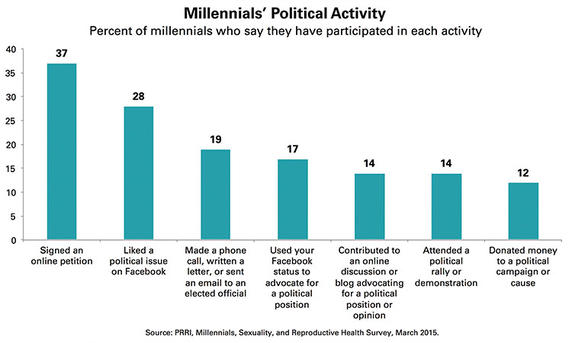
As I sat on my couch changing my social media banners to proclaim solidarity with Sexual Assault Awareness Month, I could not help but ponder a word that has been inspired by my generation’s penchant for taking to social media to demand change: slacktivism.
It’s a pretty self-explanatory word. I’m sure Oxford will sneak it into its dictionary any day now, if it hasn’t already. I would put the definition of a slacktivist as: “One who takes to social media to proclaim solidarity with or disdain for a cause but who takes little to no action in real life to effect the desired change.” Or less eloquently: “Someone who does not pass the age-old ‘if it walks like a duck and quacks like a duck’ test.”
More than once, I have unfollowed and unfriended people who flooded my Facebook feed with hashtagged-to-death posts about whatever latest social justice outrage was currently in the spotlight. I often agreed with their stances, but their hourly cries of outrage eventually blurred together, their frequency drowning out any meaning. And frankly, that kind of behavior with little evidence of real-life follow-through begins to reek of attention seeking after a while.
In general, I don’t believe that Millennials are slacktivists. Our participation in advancing the Women’s March, the Black Lives Matter movement, the push for marriage equality and other recent social rights movements have proven that.
But when it comes to politics, we have a problem.
When I think of the political activism of prior generations, I picture envelopes. Campaign donations dropped without fanfare into the neighborhood mailbox. Political mailers stuffed by parents and their unwitting children around dinner tables after school. Letters to congressmembers written by hand.
This is not to imply that what I view as the Millennial political slacktivism problem has anything to do with our unfamiliarity with snail mail. But it does, perhaps, have to do with our preferred alternative: social media.
A March 2015 study put out by PRRI (Public Religion Research Institute), a nonprofit, nonpartisan research institution, may have foreshadowed what was to come in 2016.
PRRI surveyed Millennials about what types of political action they had engaged in, and the largest grouping, 37%, responded that they had signed an online petition. The second largest grouping, 28%, had demonstrated their political leanings by liking an issue on Facebook.
Smaller percentages took actual action. Of those surveyed, 14% attended a political rally or demonstration, and 12% donated money to political cause or campaign.

In May 2016, Pew Research published an article on its website titled, “Millennials match Baby Boomers as largest generation in U.S. electorate, but will they vote?”
Only half of the Millennial electorate turned out to vote, as I noted in my last column. I guess when you compare that with the fact that only roughly 20% of the Long Beach electorate voted in the last municipal election, you know, half doesn’t seem so bad.
. . . But it is. Millennials are the largest age cohort in America. As such, our voices should be heard. But they can’t be heard unless we use them.
President Trump lost the Millennial vote by a wide margin – only 37% of Millennials who voted cast ballots for Trump, according to the Brookings Institute.
Considering how our generation voted, it doesn’t seem too far-fetched to assume that the views of the 50% of us who did vote mirror those of the Millennials who didn’t. That’s a pretty large sample size, after all.
When I think back on this election, I recall a Facebook feed absolutely inundated with posts glorifying Bernie Sanders. He would fix student debt! He’d level the economic playing field! He would all but solve global warming! He’d fix the prescription drug cost crisis! Oh, and have you seen how big his rallies are?!
A good friend of mine was one of the Berners. He was absolutely enthralled with the prospect of a Bernie presidency. He preached Bernie wherever he went. He even bought a bumper sticker.
But this zillionth-generation American citizen was not registered to vote. And, despite my prodding, he did not register in time for the primaries – or for election night.
Bernie didn’t win the Democratic nomination, despite inspiring mass enthusiasm among my age group and drawing massive crowds.
Pew’s May 2016 article pessimistically noted, “While the growth in the number of Millennials who are eligible to vote underscores the potential electoral clout of today’s young adults, Millennials remain far from the largest generational bloc of actual voters. It is one thing to be eligible to vote and another entirely to cast a ballot.”
The article pointed out that the highest-ever turnout of Millennial voters was in 2008. At the time, only half of the generation turned out to vote.
Clearly, we are not improving with age.
Expressing yourself on social media until your fingers turn numb does not count as activism. The web is nebulous. You may think your voice is being heard, but it is just being drowned out by all the other people who think the same thing.
If you didn’t vote, don’t complain. Learn your lesson. Use your voice.
Walk like a duck, or find another pond.
